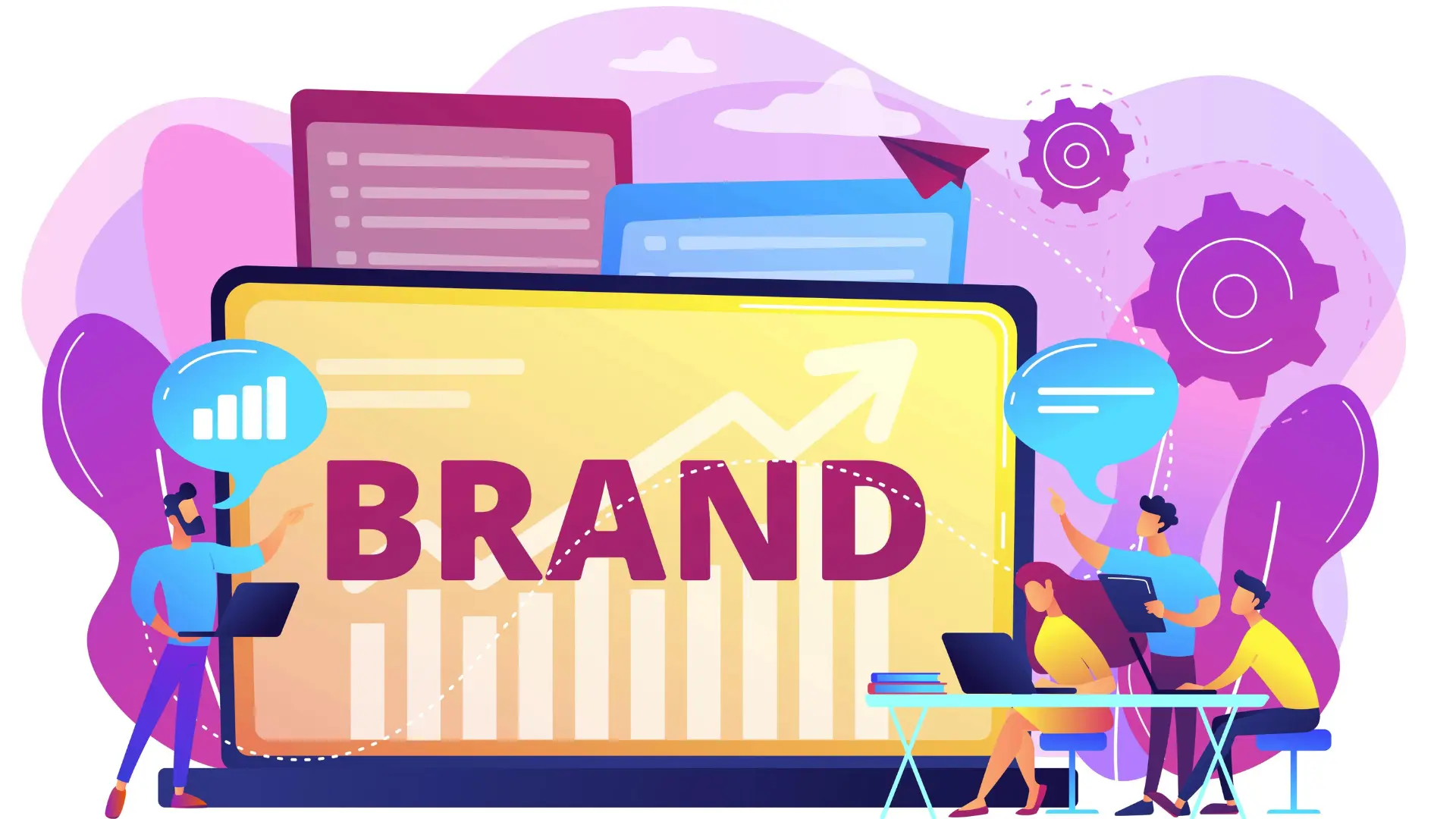
Brand Equity: The Secret to enhance your business
More than ever, businesses now struggle to win and keep customers’ loyalty while also increasing market share. To better understand brand equity and the significance of creating and maintaining it through time, let’s study what it is today.
Understanding brand equity, although a complicated and multifaceted notion, is essential for a brand to grow its competitive potential. Learn more about this idea and how it helps your company succeed in the following paragraphs.
What is brand equity?
Brand equity is a measure of how well-known your business and brand are to customers. It’s one of the first crucial actions you need to do while advertising your goods and services.
This idea aims to clarify and quantify the difference in how customers react to different brands’ marketing strategies for the same product or service.
- From the perspective of the customer, a brand’s worth may be calculated as the total of its favorable and unfavorable connotations.
- From the standpoint of the corporation, value is what the customer sees as an intangible asset on the income statement.
Unlock Unlimited Surveys & Responses with Fynzo Survey – 99% Features Free Forever!
⭐ Rated #1 Trending Survey Tool by Software Suggest ⭐
Why Choose Fynzo Survey?
- Unlimited Surveys: Create as many surveys as you need without any limits.
- Unlimited Responses: Collect unlimited responses effortlessly.
- 99% Free Features: Access nearly all our powerful features for free, forever.
- User-Friendly: Easy setup, create your survey in minutes.
What elements make up brand equity?
Brand equity consists of a variety of things, including perceived quality, brand association, brand loyalty, brand recognition, and other intellectual assets.
1. Brand Loyalty
Consumers who really enjoy a brand’s products are more likely to stick with it by making frequent and repeat purchases from it rather than switching brands, according to brand loyalty.
High brand loyalty helps an organization get a bigger portion of the market while ensuring that operations are steady and reliable.
2. Brand recognition
The degree to which a brand is recognized or known to a customer is referred to as brand awareness.
When searching for a certain product, a buyer will think of a brand with a high perceived value.
3. Perceived excellence
This component focuses on the brand’s reputation for excellent customer service and high-quality goods.
Good quality is appreciated more than product characteristics, and buyers are generally prepared to pay more for high-quality items than other brands.
4. Company affiliation
Brand connection refers to everything associated with the brand, whether it evokes favorable or unfavorable emotions, such as a product’s practical, interpersonal, or emotional advantages.
More broadly, if customers primarily identify positive traits with the brand, then the brand has high brand equity. This has to do with the brand’s overall image and what consumers associate with that image.
5. Other assets owned
Patents, trademarks, and connections with channels or commercial partners are examples of assets.
These assets are essential to make sure that rival businesses can’t compete by utilizing a name that sounds close to yours or packaging that looks very similar to yours, which might mislead customers and threaten your client base.
Unlock Unlimited Surveys & Responses with Fynzo Survey – 99% Features Free Forever!
⭐ Rated #1 Trending Survey Tool by Software Suggest ⭐
Why Choose Fynzo Survey?
- Unlimited Surveys: Create as many surveys as you need without any limits.
- Unlimited Responses: Collect unlimited responses effortlessly.
- 99% Free Features: Access nearly all our powerful features for free, forever.
- User-Friendly: Easy setup, create your survey in minutes.
How can brand equity be created?
The cornerstone of an organization’s long-term success is the creation of significant value. Here are a few techniques:
1. Bring about brand awareness
This may be achieved, for instance, by developing distinctive, powerful, and positive brand features that people will remember.
- Promoting your company via various mediums
- Engage in social media
- Designing viral content (videos, campaigns)
2. Your brand's position in the market
It is important for a brand’s whole culture—including its beliefs, values, and areas of specialization—to be consistent so that customers are clear about what the company represents.
You may adjust things, of course, as long as they are in line with changing customer wants or outside economic and societal variables.
3. Place a focus on favorable brand connections
To build brand loyalty, it’s essential to have strong brand connections. Here are some pointers for getting customers to like your brand:
- Use creative and eye-catching promotional materials to draw attention to the key practical, interpersonal, or psychological advantages of your product.
- Make sure the organization that created the brand upholds ethical business principles.
- Look for endorsements from famous people.
4. Focus on developing connections
Building and maintaining strong connections with your target groups is crucial since customers in general judge how strong value is. Managers may do it in straightforward ways like:
- Utilizing social media to reach out to consumers
- Always providing outstanding customer service.
- Monitoring any bad coverage or remarks, listening, and reacting
How is brand equity measured?
Since there isn’t a single or reliable metric that companies can use to gauge the subjective reactions and feelings of customers, calculating brand equity may be the most challenging component of the concept.
However, it continues to serve a crucial purpose since failing to recognize the power of value may have an impact on outcomes and competitiveness.
Unlock Unlimited Surveys & Responses with Fynzo Survey – 99% Features Free Forever!
⭐ Rated #1 Trending Survey Tool by Software Suggest ⭐
Why Choose Fynzo Survey?
- Unlimited Surveys: Create as many surveys as you need without any limits.
- Unlimited Responses: Collect unlimited responses effortlessly.
- 99% Free Features: Access nearly all our powerful features for free, forever.
- User-Friendly: Easy setup, create your survey in minutes.
1. Quantitative analyses
It involves evaluating the brand’s worth using financial metrics that demonstrate the necessary brand strength. These metrics consist of
- Margin of profits
- Sensitivity to price. Price elasticity in economics describes how quickly customer demand will vary in response to price changes.
- Cost efficiency
- Expansion rate
- Percentage of market share
- Purchase volume
2. Quantitative evaluations
Although these metrics cannot quantify the brand’s worth in and of itself, they are a vital source of information. Among the qualitative techniques are:
- Monitor social media responses to your brand to see how much “noise” it generates.
- Evaluating consumer sentiment through surveys or focus groups will reveal how much value they place on your brand.
- Conduct focus groups to determine which brands are the customers’ favorites and to assess their knowledge of different brands available on the market.
Importance of managing brand equity
To gain various competitive advantages that will spur profitable growth, managing brand equity is crucial.
When introducing line extensions or extending their brand name to new products, brands with high brand equity are exposed to much less risk because the brand name itself has value. The capacity of the consumer to understand and process information and make a confident purchasing choice is stated to be improved by brand equity.
As a result, a company with strong brand equity may gain and hold a significant portion of the market share necessary by building a base of devoted customers who won’t defect to rivals. Strong brands are often more effective in luring talent and investor trust. The same applies to suppliers, who may be more certain that the firm will be consistent when signing contracts.
Unlock Unlimited Surveys & Responses with Fynzo Survey – 99% Features Free Forever!
⭐ Rated #1 Trending Survey Tool by Software Suggest ⭐
Why Choose Fynzo Survey?
- Unlimited Surveys: Create as many surveys as you need without any limits.
- Unlimited Responses: Collect unlimited responses effortlessly.
- 99% Free Features: Access nearly all our powerful features for free, forever.
- User-Friendly: Easy setup, create your survey in minutes.
Conclusion
In conclusion, the brand’s value stands for something very significant and encompasses the consumer’s knowledge of the brand, their connections with the brand, their perception of the product quality, and their level of loyalty to the brand. Because it significantly affects a brand’s capacity to sustain a sustainable competitive advantage, brand equity is a crucial part of marketing strategy.
FAQs
1. What are the elements of brand equity?
Seven essential elements make up brand equity: recognition, uniqueness, vitality, relevance, loyalty, and adaptability. These can be built (or destroyed) more easily in certain cases than others.
2. What is the purpose of brand equity?
Making items unique, instantly recognized, superior in quality, and dependable helps businesses build brand equity for their goods.







